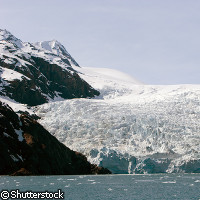Long-term sea level rises may be greater than predicted
Sea levels may rise much further than long-term projections predict, even if today's carbon dioxide (CO2) levels are stabilised, says a new report published this week in the journal Nature Geoscience. The study, 'Antarctic temperature and global sea level closely coupled over the past five glacial cycles', was carried out by UK researchers from the National Oceanography Centre, Southampton (NOCS), and the University of Bristol, along with colleagues at the University of Tübingen in Germany. The team created a continuous reconstruction of sea level fluctuations over the past 520,000 years and compared it with data on climate change and carbon dioxide levels from Antarctic ice cores. Their results suggest that sea levels may rise to a much higher level than the long-term projections found in the Fourth Assessment Report of the Intergovernmental Panel on Climate Change (IPCC), an advisory body that provides objective information on climate change. The research reveals a systematic relationship between global temperature and CO2 concentration and sea level changes over the past five glacial cycles. If this relationship is projected onto today's CO2 levels, this would result in a 25-metre sea level rise. The figures are in line with data from the Middle Pliocene era, 3 million years to 3.5 million years ago, when CO2 levels were similar to today's levels. 'We emphasise that such equilibration of sea level would take several thousands of years. But one still has to worry about the large difference between the inferred high equilibrium sea level and the level where sea level actually stands today,' commented Professor Michael Kucera of the University of Tübingen and Dr Mark Siddall of the University of Bristol. 'Recent geological history shows that times with similarly strong disequilibria commonly saw pulses of very rapid sea-level adjustment, at rates of one to two metres per century or higher.' Currently, not enough is known about the total possible sea-level rise in comparison with current and projected global warming rates. It takes a long time for ice sheets to melt, even at rapid temperature rises, and current predictions for the coming century only take into account the amount of melt that will occur in that time. It is very difficult to estimate how fast the ice sheets will melt during the next millennium, given current levels of climate change. The lead author of the report, Professor Eelco Rohling of the University of Southampton's School of Ocean and Earth Science, said, 'Let's assume that our observed natural relationship between CO2 and temperature and sea level offers a reasonable "model" for a future with sustained global warming. Then our result gives a statistically sound expectation of a potential total long-term sea-level rise. 'Even if we would curb all CO2 emissions today, and stabilise at the modern level (387 parts per million by volume), then our natural relationship suggests that sea level would continue to rise to about 25 metres above the present. That is, it would rise to a level similar to that measured for the Middle Pliocene era.'
Countries
Germany, United Kingdom



